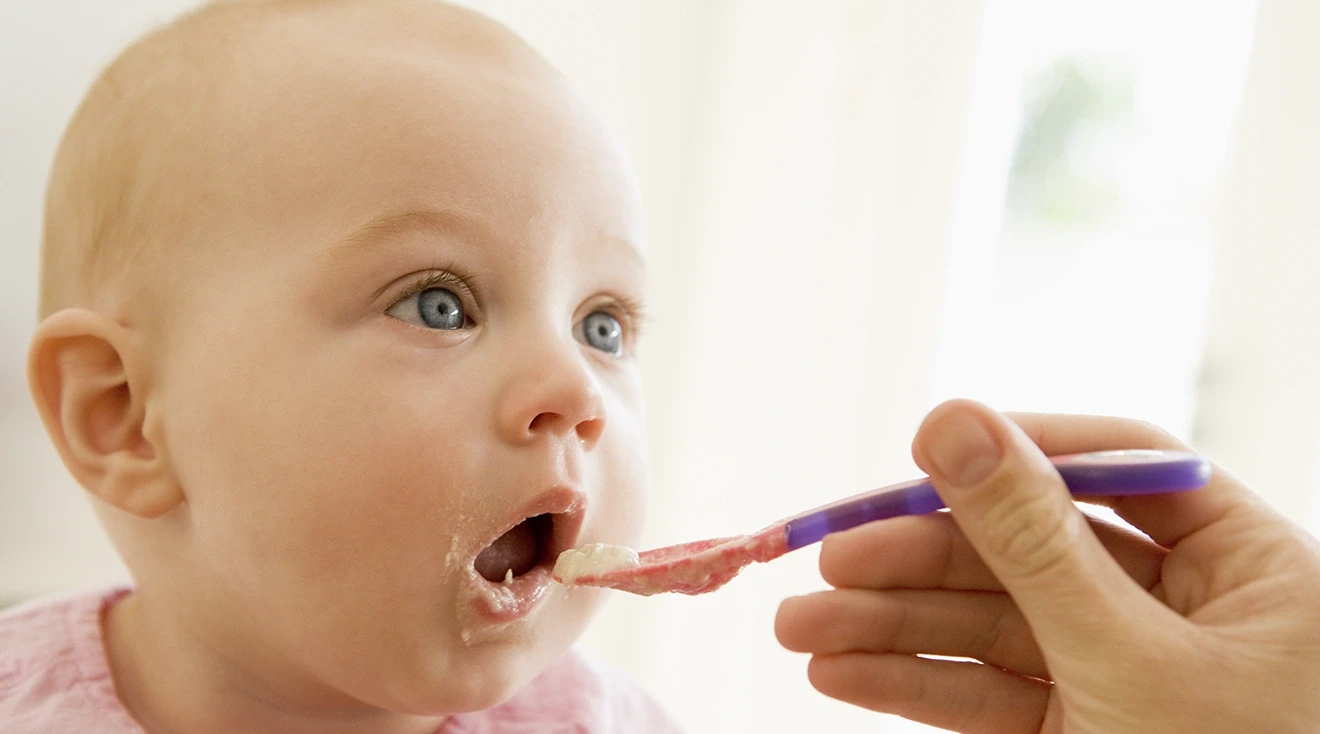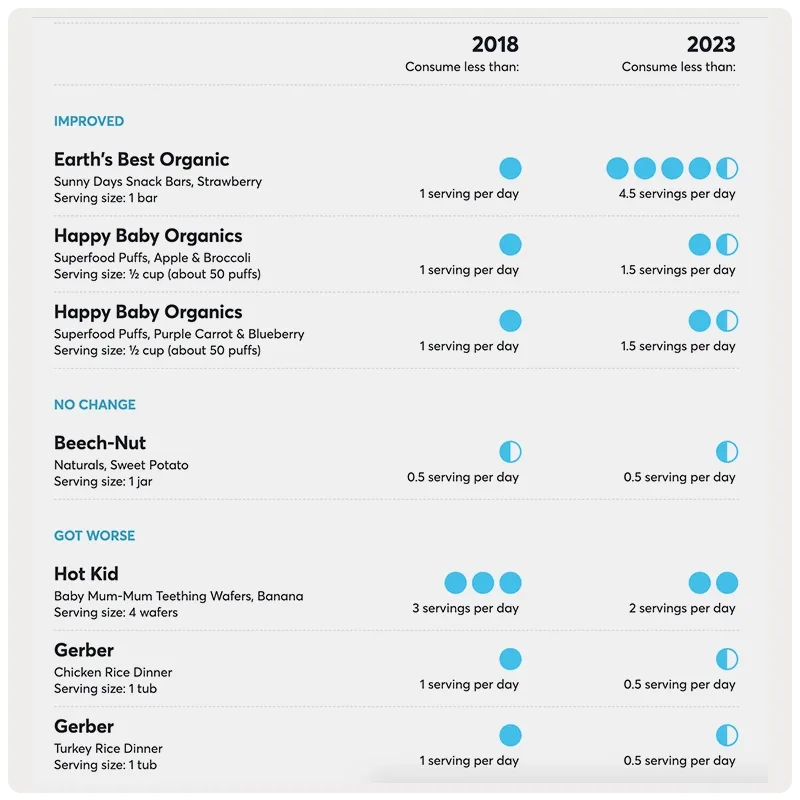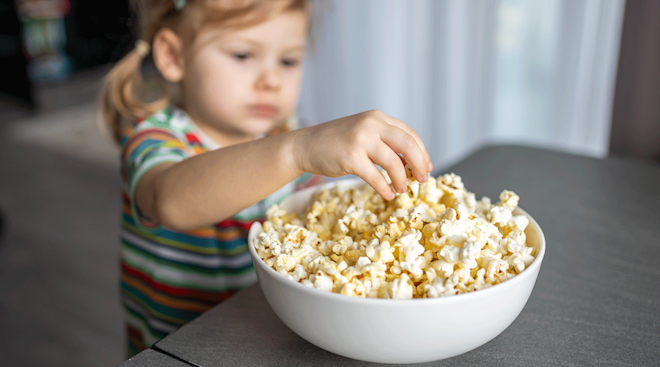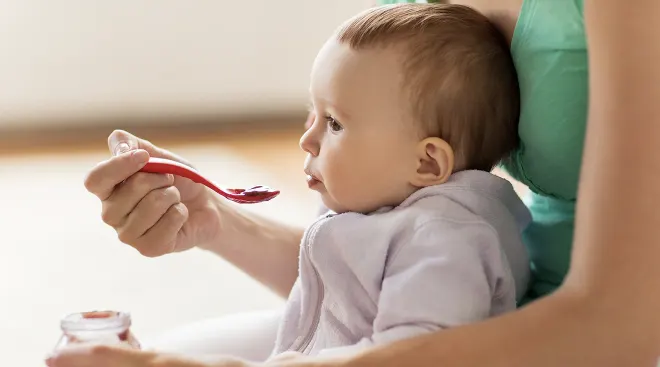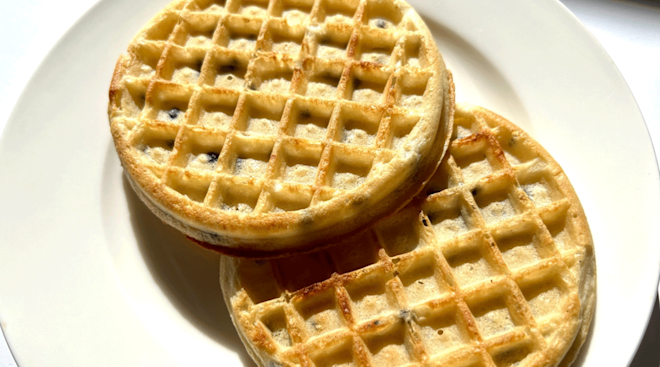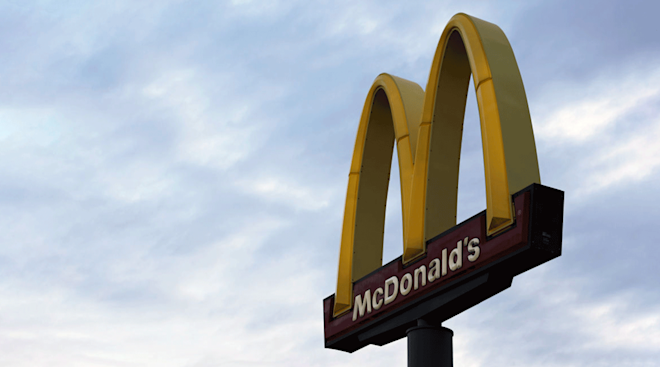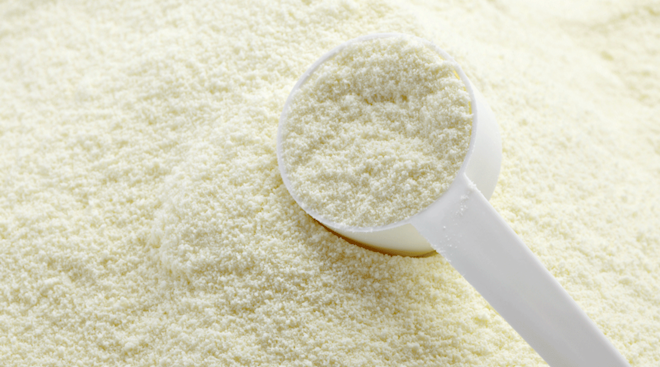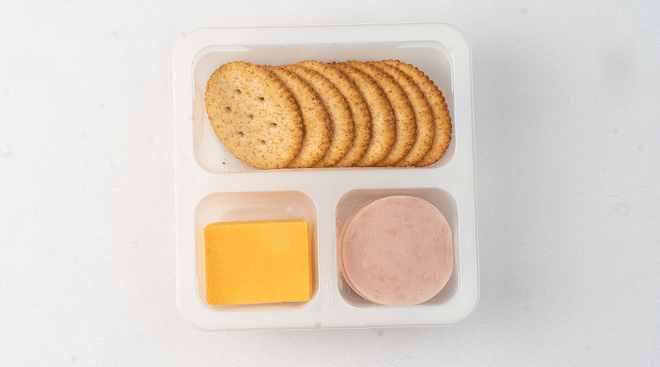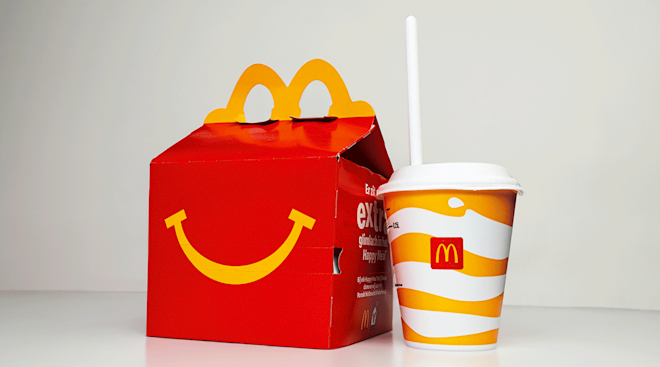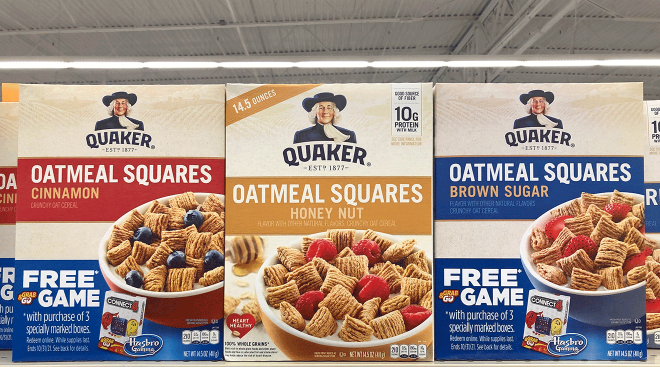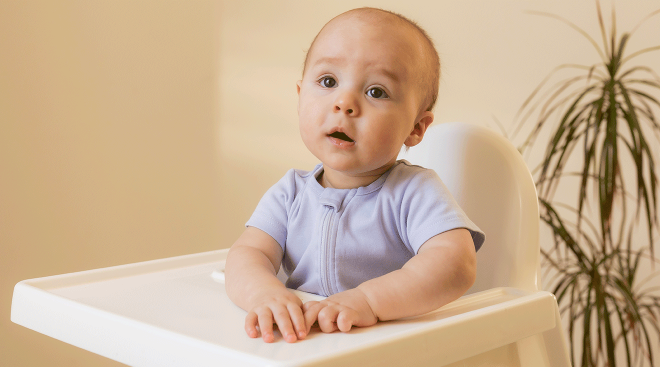Study Finds Heavy Metals Still Found in Popular Baby Foods
There are several things that you might expect to be in baby’s food, from squashed bananas to pureed carrots, peas and more. What you might not be expecting—toxic heavy metals.
The issue of toxic heavy metals in baby foods was brought to the forefront of parents’ minds in 2018 after Consumer Reports tested the toxic heavy metal levels in several popular baby foods. Back then, over 33 of the 50 foods tested were associated with potential health risks for kids due to combined exposures from those three heavy metals.
Now, five years and several policy and manufacturer changes later, Consumer Reports (CR) sought to conduct the same test to see what changes had really been made, if any. Their conclusion—while the amounts of lead, arsenic, and cadmium in baby foods appear to be getting lower, the overall risk hasn’t changed much in the last five years.
What the study found
As part of CR’s new analysis, researchers retested seven baby foods that had concerning levels of toxic heavy metals five years ago, and seven others that were similar to products they previously tested but that are no longer on the market.
The results from the 2023 study showed that rice and sweet potato products and, to a lesser extent, carrots remained the baby foods that posed the biggest risks. For all three of the products that contain sweet potatoes, CR’s experts recommend consuming less than one serving a day; for two of them, Beech-Nut Naturals Sweet Potato and Gerber Sweet Potato Turkey with Whole Grains Dinner, the recommendation is less than half a serving.
CR also reported that the heavy metal content of baby snacks, namely teething wafers and puffs, was especially concerning because children tend to eat several servings of these foods. “Rice-based puffs are a stand-out for heavy metal contamination,” said Jane Houlihan, research director for Healthy Babies Bright Futures, a nonprofit group that works to reduce chemical exposures that harm babies’ brain development. “Puffs can be a significant source of exposure, especially when they are a family’s go-to snack.”
“In some of the products, declines in certain heavy metals were offset by increases in others, so there was little change in the amount of the foods babies could eat. And we still found worrisome levels in foods that our last tests showed to be the most concerning, namely rice, sweet potatoes, and snack foods,” James E. Rogers, PhD, CR’s director of food safety research and testing concluded in the report.
Overall this is how the seven foods from 2018 stacked up against the results from 2023 study.
What do levels remain high?
Over the past few years, the Food and Drug Administration (FDA) has attempted to set limits on certain heavy metals, like arsenic and lead, in baby foods. However, industry experts say these actions have been limited in their scope and extent as the FDA has to consider not just what would be good for the consumer but what is also feasible for companies.
CR points to where sensitive “root vegetables” like sweet potatoes and carrots are grown as to why levels may remain high. These foods absorb toxic metals like lead from the soil as they grow, and these heavy metals tend to be higher in certain places.
Higher levels of lead can be found close to highways, due to past use of leaded gasoline, or small airports, where leaded gasoline may still be used. Levels can also be high near orchards and cotton fields where lead-arsenate pesticides were previously used.
What can parents do to limit exposure
While exposure to heavy metals in baby’s food is certainly concerning and not preferable, pediatricians generally agree that the amount of heavy metals in baby foods is likely small compared to exposure of heavy metals from other sources. That said, pediatricians always recommend limiting exposure to all heavy metals as much as possible, especially during the critical period when a young baby’s brain is still developing. Heavy metal exposure can lead to learning difficulties and behavioral issues.
In the pas, people believed that making your own baby food might be the solution to getting around heavy metals, but a recent study debunked this theory. Instead, the best way to limit baby’s exposure is to feed baby a variety of foods, such as fresh fruits, vegetables and grains. Pediatricians don’t often recommend rice as a food for babies since it’s not that nutritious, often causes constipation and tends to have higher levels of arsenic, with brown rice having the highest arsenic levels. That said, if you do offer rice, limit it to one serving a day.
You can read more about what a panel of board-certified pediatricians had to say about toxic heavy metals in baby foods here.
Navigate forward to interact with the calendar and select a date. Press the question mark key to get the keyboard shortcuts for changing dates.

































